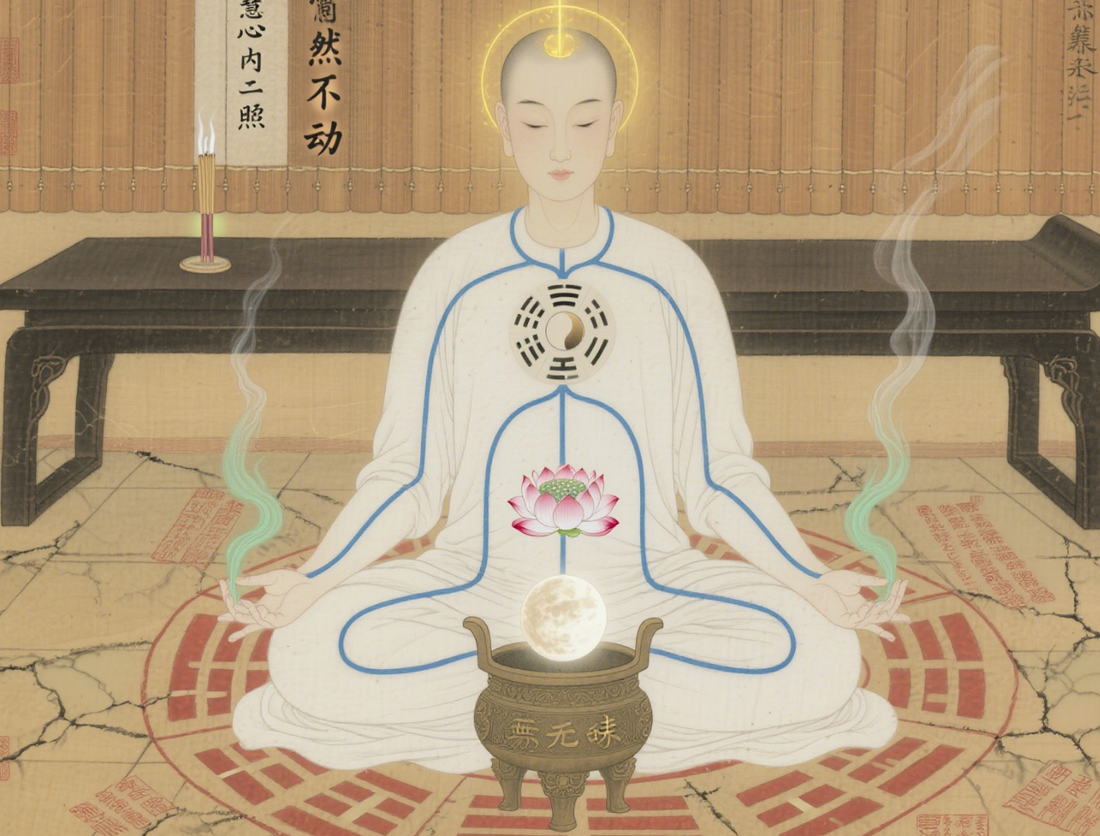Dans le taoïsme , la cultivation signifie « cultiver sa nature et purifier sa vie ». La « nature » désigne l'esprit, et la « vie » le corps physique. Cultiver , c'est exercer une maîtrise de soi sur son esprit et son corps par des moyens et des méthodes spécifiques, afin d'atteindre le but ultime : « Mon destin est entre mes mains, et non entre celles du ciel. »
Les exigences fondamentales pour les pratiquants taoïstes qui se réunissent chez eux sont les suivantes : respecter le Tao et valoriser la vertu, se cultiver selon les enseignements, aider le monde et être bénéfique aux gens, accumuler des mérites et des vertus, respecter les maîtres et les enseignements, observer le végétarisme et réciter les écritures, se convertir aux Trois Trésors du Tao, des Écritures et des Maîtres, s'abstenir de tout mal et pratiquer toutes sortes de bonnes actions.
✨ Recommended Taoist Talismans
Discover powerful talismans for your spiritual journey
De plus, les méthodes suivantes sont utilisées lors de certaines cultures :
Observer le jeûne.
Les dates d'observation du jeûne sont les suivantes : les six mois de jeûne, qui correspondent à chaque mois impair ; les dix jours de jeûne, c'est-à-dire les premier, huitième, quatorzième, quinzième, dix-huitième, vingt-troisième, vingt-quatrième, vingt-huitième, vingt-neuvième et trentième jours de chaque mois ; les trois jours Yuan, à savoir le quinzième jour du premier mois lunaire (le jour de Shangyuan), le quinzième jour du septième mois lunaire (le jour de Zhongyuan) et le quinzième jour du dixième mois lunaire (le jour de Xiayuan) ; les huit jours des termes solaires, c'est-à-dire le début du printemps, le début de l'été, le début de l'automne, le début de l'hiver, l'équinoxe de printemps, le solstice d'été, l'équinoxe d'automne et le solstice d'hiver ; le jour de Jiazi ; le jour de Gengshen ; et le jour de naissance. De plus, toutes les cérémonies religieuses telles que la récitation d'écritures, l'exécution de rituels de pénitence, l'offrande de sacrifices et de purification, et la tenue de rites taoïstes (jiao) sont incluses dans le champ d'application de l'observance du jeûne.
Réciter et étudier les écritures taoïstes.
Selon le niveau culturel du pratiquant, il est généralement conseillé de réciter et d'étudier les « Écritures de récitation du matin et du soir », l'« Écriture des Trois Officiers et de la Grande Ourse », le « Traité sur la réponse du Seigneur Suprême », les « Textes inscrits sur les vertus secrètes du Seigneur Wenchang », etc. Les pratiquants taoïstes d'un niveau culturel plus élevé peuvent également réciter et étudier des classiques tels que le « Tao Te Ching », le « Zhuangzi » (aussi appelé « Nanhuajing ») et les « Essentiels de la vie et de la nature ».
Développer ses compétences.
Les pratiquants taoïstes qui cultivent leur foi chez eux devraient également cultiver leur esprit et leur corps pendant leur temps libre, en dehors du travail et des corvées, afin de guérir les maladies, de fortifier leur organisme, de prolonger leur vie et même d'atteindre l'éveil et l'immortalité. Ils peuvent apprendre des techniques de cultivation spécifiques auprès d'un maître spirituel ou d'autres moines taoïstes.




















